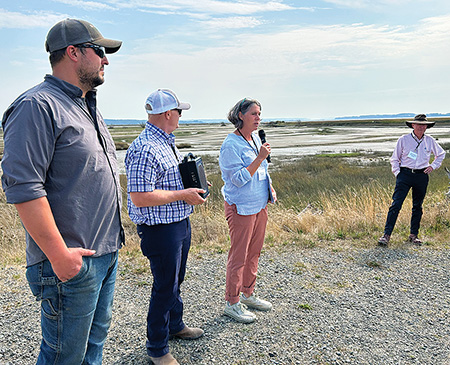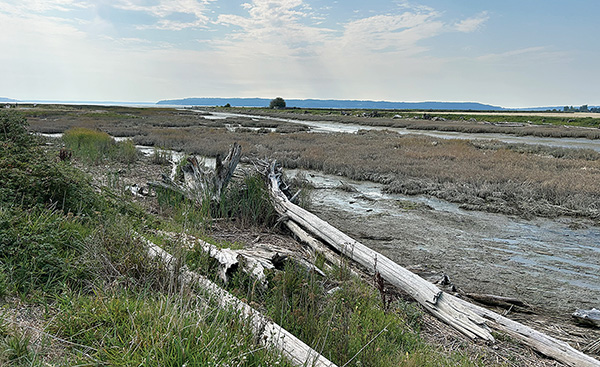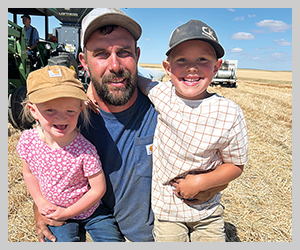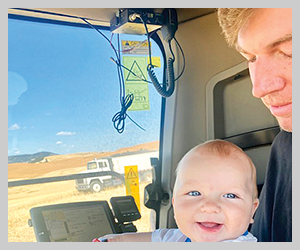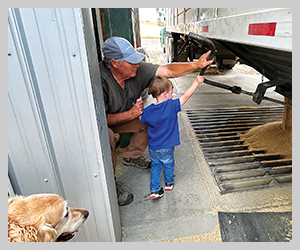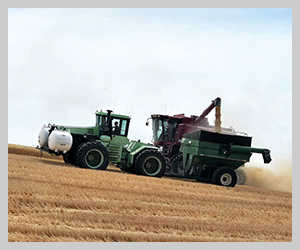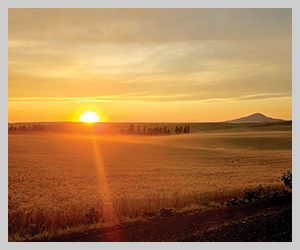Savoring the land Washington state legislators hear from Skagit Valley ag interests
2025November 2025
By Trista Crossley
Editor
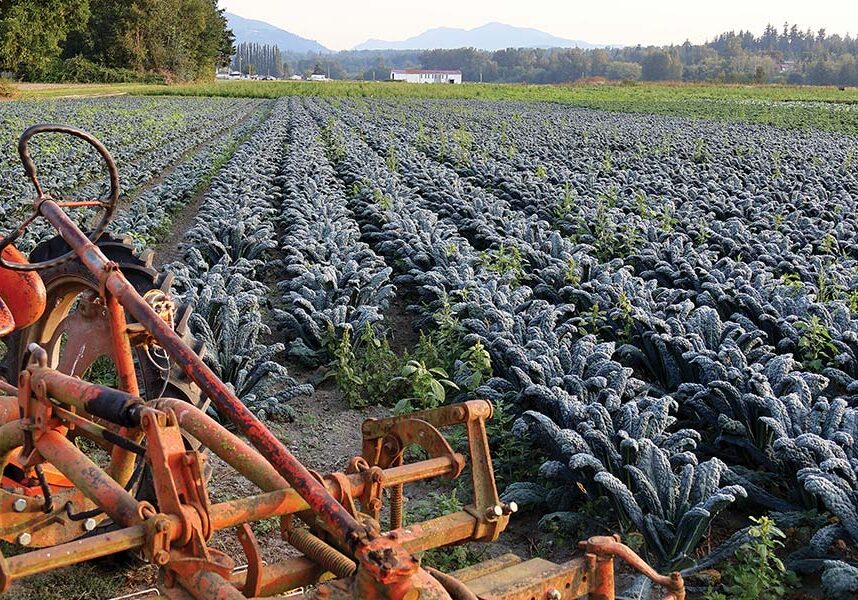
Wheat, potatoes, shellfish, and irrigation interests came together in late August to help state legislators “savor the land” during a day-long agricultural tour across the Skagit Valley.
Approximately 20 legislators took part in the tour, which included visits to several farms, a local flour mill, a tidegate, and an estuary restoration project. At each stop, farmers and stakeholders talked about their operation and some of the obstacles they were dealing with. Legislators had the opportunity to ask questions and hear how rules and regulations being passed in Olympia were directly impacting those who make a living off the land. Some of the topics discussed included farm labor, riparian buffers, regenerative agriculture, conservation, dike and drainage infrastructure, and technology. The tour was sponsored by the Washington Association of Wheat Growers, the Washington State Potato Commission, the Pacific Coast Shellfish Growers Association, and the Skagit Drainage and Irrigation Districts Consortium.
The tour kicked off the night before at Christianson’s Nursery and Greenhouse in Mount Vernon where Derek Sandison, director of the Washington State Department of Agriculture (WSDA), gave an overview of agriculture in the state during a meal made primarily from local ingredients. Sandison highlighted the ongoing loss of farms in the state, telling the group in the past five years, Washington has lost about 3,000 farms through closures, consolidations, and purchases by investment firms. He explained that when a farm is purchased by an investment firm, it means they usually aren’t buying supplies locally and aren’t part of the community.
“I’m concerned about what that means for rural communities,” he said.
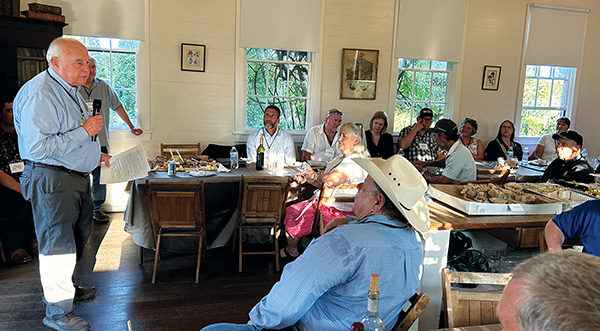
Agriculture in Washington — and across the nation — is seeing the cost of production exceeding price. Trade is down, but it isn’t the only factor impacting agriculture. Sandison pointed out other factors including:
- Reduced funding for research.
- Regulatory burdens, such as overtime laws.
- Climate impacts such as drought, which impact water supply for irrigators.
- Pest pressures.
The WSDA is working with the Washington State University Impact Center to break down what’s happening with farmers’ bottom line, and how the department can help. WSDA is working to expand consumer access by promoting Washington-grown products and supplying food pantries and banks with local products.
“That bolsters all size farms in all parts of the state,” Sandison said.
The director also touched on the urban/rural divide, saying it is important to work with the urban community and legislators to explain what and why farmers are doing, and what it takes to produce food.
The next morning, legislators boarded a bus for the tour. Each stop highlighted a particular aspect of the valley’s agriculture industry.
Boldly Grown in Bow, Wash., is a 45-acre certified organic family farm that focuses on winter crops, such as kale, cabbage, beets, carrots, and radicchio. The farm includes established riparian buffers. Owner Amy Frye explained that if they had to install buffers that met the maximum tree height specification, they would lose about eight acres, which would put them out of business. She told the group that a uniform buffer doesn’t make sense, and depending on the location of the buffer, the shade it creates could limit what crops can be grown. Frye also said that Washington regulations and codes make farming much more expensive and don’t make sense in all situations. She wanted legislators to keep farmers in mind when making policy. “Farmers are trying to do their best,” she said.
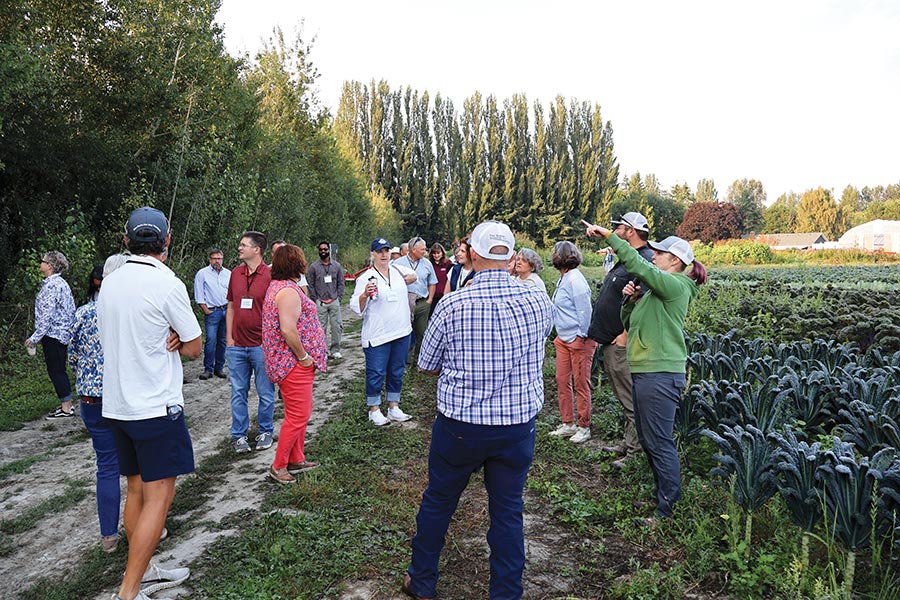
Cairnspring Mills, a tenant at the Port of Skagit in Burlington, Wash., is an example of a private/public partnership. The mill was founded in 2016 to partner directly with growers and support regenerative farming practices, keep farming economically viable, and to revitalize the local food system. Co-founder Kevin Morse said they contract about 5,000 acres of wheat annually and pay their growers roughly $9 per bushel, which they can do because their flour costs more on the shelf. “Flour can be special,” Morse said. The group discussed farmland preservation, infrastructure support, and building domestic markets for high-value crops.
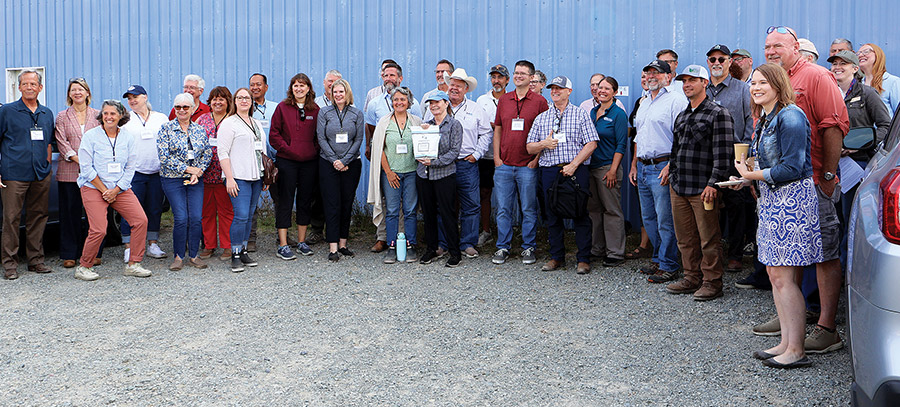
At Taylor Shellfish, Bill Dewey, director of public affairs for Taylor Shellfish Farms, told legislators that the company was “farming in the water.” Water quality challenges, labor issues, and invasive green crabs were some of the topics he discussed. “Shellfish are filter feeders, so any pollution in the water is bad and can shut us down,” he said. Heather Bartlett, deputy director at the Washington State Department of Ecology (Ecology), touched on nonpoint pollution, reviewing some of the department’s different projects, such as the Clean Samish Initiative, which seeks to improve water quality and restore ecosystems in the Samish River watershed and Samish Bay, and the Agriculture and Water Quality Advisory Committee.
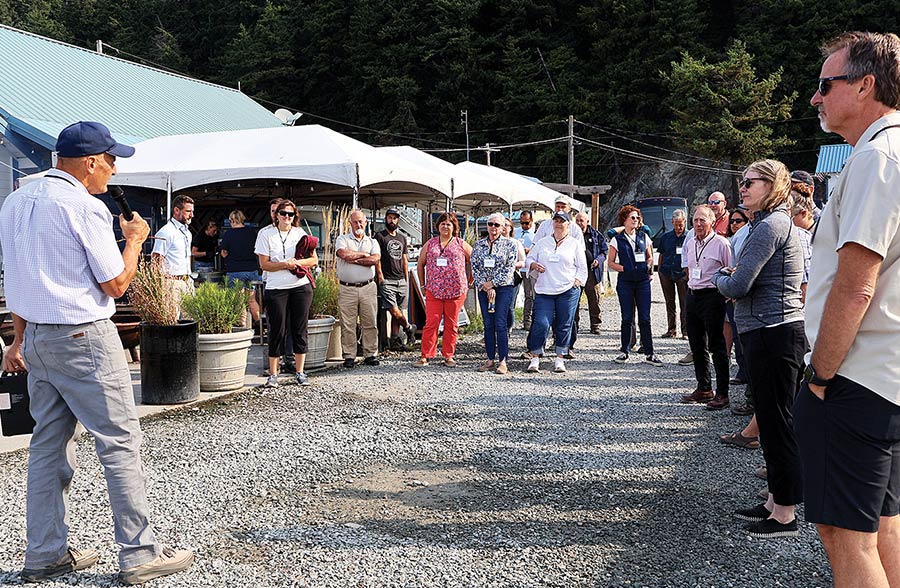
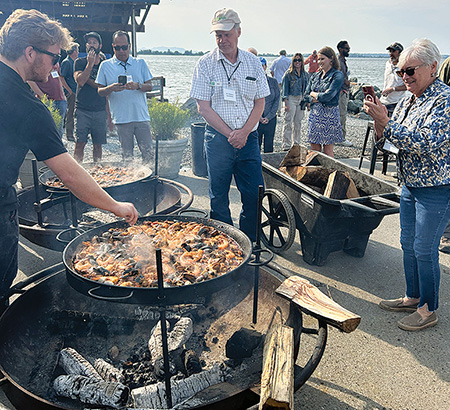
At the Joe Leary Slough Tidegate just west of Bow, legislators heard the important role tidegates play in maintaining farmland drainage while improving fish passage. This infrastructure is a key component in regional flood control and works alongside dike and drainage infrastructure to protect over $300 million in annual crop output across the delta region. Owen Peth is the fifth-generation at his family’s farming and ranching operation. He told the group that farmers have to take care of the land in order to keep farming it. Jenna Friebel, executive director of the Skagit Drainage and Irrigation Districts Consortium, said that funding for the infrastructure is not keeping pace with needed costs and repairs. The consortium is working on a climate resiliency project to make the dikes be able to withstand stresses, but the “cost is more than local farmers can bear,” and they are looking to the state for leadership for consistency in funding and environmental compliance.
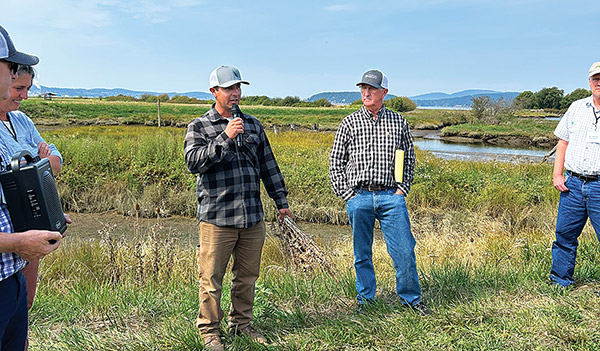
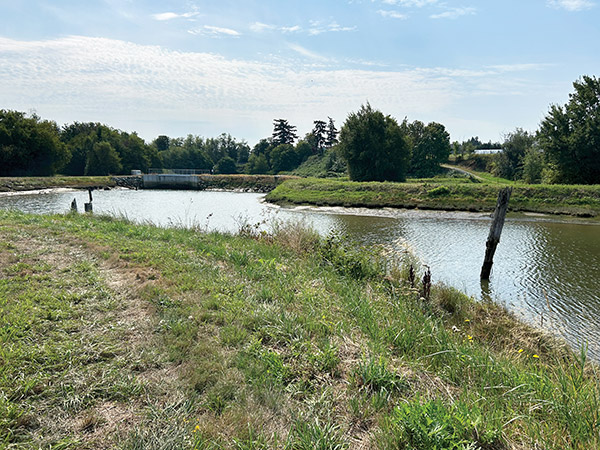
Thulen Farms is a multigenerational, family-owned potato farm in Mount Vernon. Several years ago, the operation spent $2 million to automate the sorting and grading of potatoes in an effort to reduce labor costs. Father and son team, John and Wylie Thulen, said that while technology is good, there are additional maintenance and upgrades that have to be factored in. They also pointed out that farmers are generally not seeing their prices increase even as consumer prices increase.
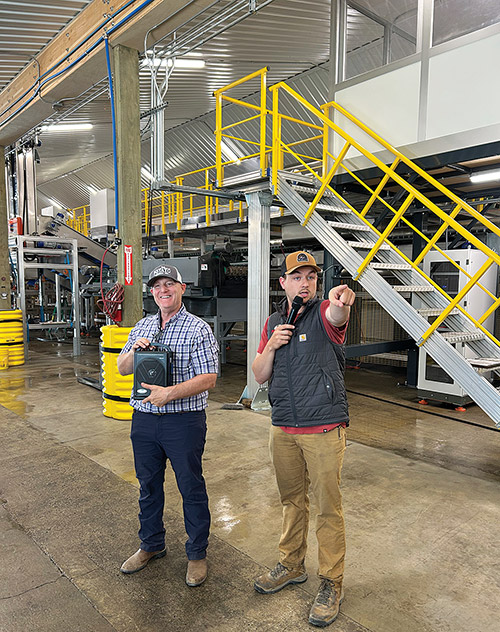
The final stop on the tour was at the Fir Island Farm Estuary Collaboration. Located at the mouth of the Skagit River where it meets Puget Sound, the Fir Island Farm property includes over 131 acres of restored estuarine habitat. Managed by the Washington Department of Fish and Wildlife (WDFW), it is adjacent to highly productive farmland still in active rotation, demonstrating the coexistence of agriculture and restoration. Friebel and WDFW’s Marcus Reeves told legislators that “farmland is not compatible with estuary restoration. You get habitat gains but at the cost of agriculture.” Ron Wesen, Skagit County Commissioner, said it is hard to get everybody involved that needs to be in estuary restoration. “We want fish. We want ag. How do we do that?” he asked.
